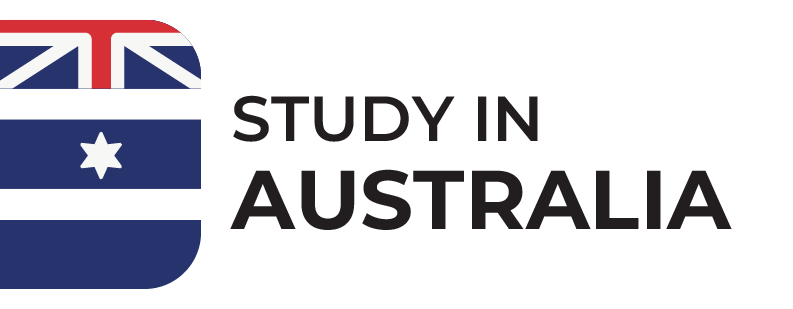If you decide to study Nursing in Australia, then you have made the perfect choice. Australian Nursing schools consistently rank among the world’s best for their global education standards and amazing future prospects.
Do you identify yourself as a caring person who has empathy and the commitment to help others with health problems? Then a Nursing degree in Australia is a perfect option for you. It won’t only fulfill your personal motivation, but will also turn to be highly rewarding.
Table of Contents
Nursing Degrees in Australia
It is very important to know what kind of Nursing degrees are offered by universities in Australia so you can make informed-decision about professional careers you want to pursue afterward.
Given below is a list of Nursing degrees offered in Australia:
Bachelor of Nursing
The Bachelor of Nursing is the minimal degree required to be allowed to practice your profession as a nurse. Following the completion of this study program, you become a General Registered Nurse which means you’ve been certified to provide your healthcare services in any hospital.
A typical bachelor study program of Nursing in Australia takes 3 years of full-time studies to be completed and longer if you attend a part-time program. Study modules change depending on the university of your choice, but overall you’ll be taught several important subjects including anatomy, chemistry, biology, health assessment methods, research principles and so on.
Since a Bachelor of Nursing is aimed at preparing you to work as a registered nurse afterward, your course will also include a certain set of practical sessions. During these sessions, you will be taught to deal with daily problems that nurses usually face and often you’ll be doing it in a real hospital environment.
Entry requirements
Universities in Australia set admission criteria on their own. Therefore, entry requirements for a Bachelor degree vary according to the university and the course you want to apply for.
Most universities will require your application file to contain the followings:
- An application form filled properly
- A Recognized High School Qualification
- Language Proficiency
- Personal Details
Note that if you have obtained your high school diploma overseas, it must meet the standards specified from the Australian Qualification Framework (AQF). Universities in Australia accept some international qualifications and if they don’t, there’s still an opportunity for you to sit for certain examinations before commencing regular studies.
As per language requirement, you must prove your proficiency by means of a standardized exam since Nursing courses are taught in English. Typically, universities in Australia ask for IELTS, but other relevant scores like TOEFL are also acceptable.
Master of Nursing
A Master’s degree in Nursing in Australia is a study program designed to provide you with an advanced level of education both in terms of theory and practice. During your studies, you’re supposed to focus on a particular area and gain a top level of expertise in that area. For example, you can decide to become a pediatric nurse and your course will mostly contain subject related to Paediatry.
Study modules are specific to the university and the course you want to attend. Master degrees in Nursing are designed to provide a fundamental understanding of clinical practices and the social context of your future job.
Commonly, it takes two years of full-time study to complete a Master of Nursing in Australia. Since most of the nurses attending postgraduate studies are employed, universities in Australia offer various part-time study programs designed to match their daily schedule. As you’d expect, it takes longer than two years to complete a part-time course. Universities also offer various part-time study programs which are an excellent choice for students who are working and which take longer to complete.
Entry Requirements
Entry requirements for Master of Nursing courses change from university to university. However, you must make sure that you have included the following documents in your application
- A Recognized Bachelor Degree in Nursing or Equivalent
- Language Proficiency
Practice
Nurses are essential to the Australian health care system. That said, the Nursing and Midwifery Board in Australia make sure that everyone who takes the license to work as a nurse has gone through certain examinations and meets the required standards.
Universities and Nursing and Midwifery Board maintain close cooperation to ensure every student gets the chance to put their skills and knowledge to test in local hospitals and other health care settings. During this time you’ll be under constant supervision of professional health care practitioners who will help you to improve.
Commonly, as much as 50% of your bachelor study program in Australia will contain practical sessions through simulated on-campus laboratories and quite often carried out in real-life job environments where you’ll gain a wide range of practical skills applicable in different health care settings.
Employability
Australia prides an amazing healthcare system to which Nurses play an essential fact. Despite that, the number of Registered Nurses is continually growing the demand remains high. According to official data provided by the Australian Government as of 2018, there were 279,600 nurses in employment and it is estimated that the number will increase largely at 330,900 by 2023. This is to say that in the next five years there will be 147,000 job vacancies for nurses in Australia.
Also, a national report, about graduates’ employability in Australia revealed that nursing graduates had one of the highest employability in 2018. According to this report, 78.7% of nursing undergraduates and 95.6% of nursing postgraduates were employed full-time in 2018.
In addition to having a lot of job options, nursing is also a highly rewarding career. According to official calculations, nurses in Australia earned around A$61,500 in 2018, thus standing among the highest paid professionals.
Career Opportunities
According to the Government in Australia, the followings are some jobs you can do in the nursing sector:
- Nurse Practitioner
- Registered Nurse (Aged Care)
- Registered Nurse (Child and Family Health)
- Registered Nurse (Community Health)
- Registered Nurse (Critical Care and Emergency)
- Developmental Disability or Mental Retardation Nurse
- Registered Nurse (Disability and Rehabilitation)
- Registered Nurse (Medical)
- Medical Practice Nurse
- Mental Health or Psychiatric Nurse
- Perioperative or Operating Room Nurse
- Registered Nurse (Surgical)
- Registered Nurse (Paediatrics)
- Other Registered Nurses
Top Nursing Schools in Australia
The variety of study programs, taught by leading practitioners, practice-based curriculums, innovative approaches to teaching and research and state of the art facilities are some of the indicators that make up the basis of top quality education. Nursing schools in Australia live up to these values and today some of them rank among the best in the world according to relevant rankings.
If you’re an ambitious student who is only thinking to attend the best universities, with all these options ahead you might get a bit intimidated. To help you with that, we’ve shed some light in all nursing schools in Australia aiming to know what types of degrees they offer, how many students enroll, what is the rate of students’ satisfaction with their course and graduates employability.
As a result, we came up with a list of the best nursing schools in Australia:
- University of Notre Dame Australia
- University of Victoria
- The University of Sydney Susan Wakil School of Nursing and Midwifery
- Melbourne School of Health Sciences
- School of Nursing and Midwifery Deakin University
- School of Nursing and Midwifery, University of South Australia
- School of Nursing, Midwifery and Social Work – University of Queensland
- Faculty of Health and Medical Sciences, University of Adelaide
- Nursing, Midwifery and Paramedicine Curtin University
- School of Nursing and Midwifery, University of Newcastle, Australia

